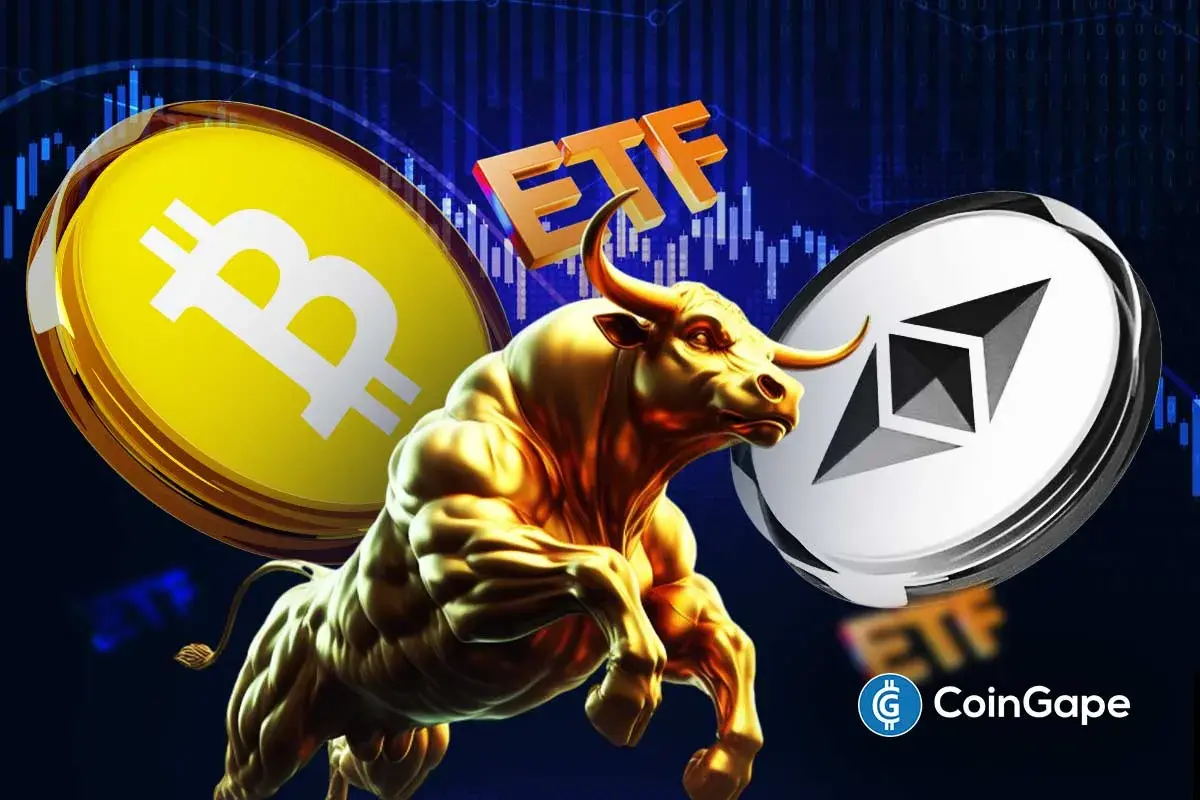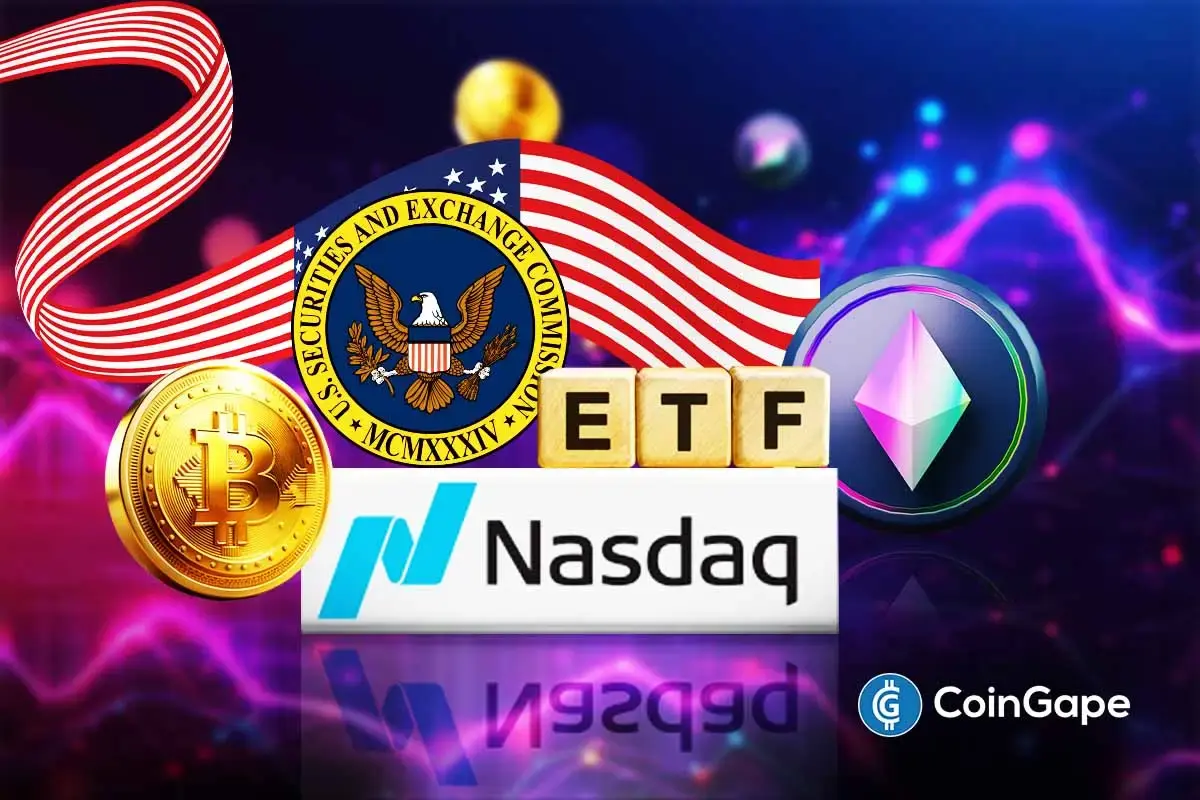Ethereum ETF Launch Doesn’t Guarantee Solana ETF Approval, Here’s Why

Highlights
- Spot Ethereum ETFs are expected to start trading on July 23.
- However, the Ether ETF doesn't guarantee other crypto ETFs approvals.
- Hence, VanEck and 21Shares' Solana ETF approval hangs in balance.
The approval and forthcoming launch of Spot Ethereum ETFs have generated excitement in the crypto community. However, experts cautioned that this doesn’t necessarily mean similar approval for other cryptocurrencies like Solana (SOL). Paul Brody, EY’s Global Blockchain Leader, recently discussed the implications of these developments.
Will Ethereum ETF Launch Lead Other Crypto ETF Approvals?
Brody expressed optimism about the launch of Spot Ethereum ETF. “I’m expecting so many good things. This is the beginning of a relatively long journey,” he said in an interview with CNBC. Moreover, he emphasized that this is an early stage of global regulatory convergence in the crypto market.
However, Brody highlighted that regulatory acceptance of Ethereum doesn’t automatically extend to other cryptocurrencies. For instance, the fate of Solana ETF applications remains uncertain. Last month, VanEck became the first to file an application for a Spot Solana ETF in the U.S. Furthermore, this month, CBOE filed a request with the SEC to list ETFs tied to the cryptocurrency.
Despite these efforts, Brody noted significant differences between Ethereum and Solana that could affect regulatory decisions. “Bitcoin and Ethereum are much more decentralized than the Solana ecosystem,” Brody explained. In addition, he pointed out that these differences in decentralization, technical requirements, and market liquidity could lead to varied responses from regulators.
“There are really substantial differences between these different networks,” he added. Hence, he suggested that the SEC might not respond to Solana in the same way it did to Bitcoin and Ethereum. Furthermore, Brody also discussed the broader regulatory landscape, comparing the U.S. to Europe.
Europe’s regulatory structure, known as the Markets in Crypto-Assets (MiCA) framework, provides a comprehensive legal model for crypto transactions. This contrasts with the more fragmented approach in the United States. In the U.S., the lack of a general framework for crypto assets makes regulatory outcomes less predictable. This could also hinder the Solana ETF approval despite the Ether ETF greenlight.
Also Read: Breaking: 21Shares Files Updated Spot Ethereum ETF S-1, Reveals Sponsor Fee
Outlook For The Broader Market
Regarding the growing institutional interest in digital assets, Brody mentioned EY Parthenon’s research. The research indicates that institutional investors are increasingly allocating to digital assets and crypto-related products. This trend, he explained, reflects a move towards mainstream acceptance of cryptocurrencies.
In Q2, Spot Bitcoin ETFs saw 79% of institutions expanding their ETF holdings. A similar trend is expected for Spot Ethereum ETF. Moreover, Brody stated, “There’s nothing about crypto assets or tokenized assets that is a fad,” reinforcing the idea that these investments are becoming a staple in diversified portfolios. However, despite the positive developments, Brody urged caution.
He noted that increased investment in crypto does not guarantee universal success for all digital assets. He drew an analogy to the precious metals market, where gold dominates due to its established value and market size. “Bitcoin is digital gold,” Brody said, predicting that it will continue to dominate the crypto market in a manner similar to gold’s dominance among precious metals.
Ethereum, too, stands out as a dominant platform for tokenized assets and smart contracts. Brody believes that Ethereum will capture the majority of investments in tokenized real-world assets. “Ethereum will soak up more than 90% of all these tokenized real-world assets,” he stated. He referenced the interest from companies like BlackRock in deploying such assets on Ethereum’s blockchain.
Additionally, Brody also commented on the barriers to growth and adoption of crypto. He cited regulatory clarity and trusted partners as critical issues. He pointed to recent legislative efforts in the U.S., such as the Financial Innovation and Technology for the 21st Century Act, which received bipartisan support.
This move, he argued, signals a positive direction for the industry. “Cryptocurrency and blockchain in general remain a bipartisan political issue,” Brody observed. The expert also suggested that bipartisan support is crucial for the continued advancement of crypto regulations.
Also Read: Is Ethereum ETF Approval “Sell The News” Event Like Bitcoin ETF?
Play 10,000+ Casino Games at BC Game with Ease
- Instant Deposits And Withdrawals
- Crypto Casino And Sports Betting
- Exclusive Bonuses And Rewards

- Vitalik Buterin Maps Out Quantum Risks as Ethereum Foundation Unveils ‘Strawmap’
- BlackRock Adds $289M in BTC as Bitcoin ETFs Log 2-Week High Inflows Of $500M
- Glassnode Signals Bitcoin Still Faces Downside Risk Amid Massive Sell Pressure at $70K
- U.S House Introduces Bipartisan Crypto Bill To Protect Crypto Developers Amid DeFi Push Under CLARITY Act
- XRP News: Ripple Unveils Funding Hub To Support Innovation On XRPL
- Top 2 Price Predictions Ethereum and Solana Ahead of March 1 Clarity Act Stablecoin Deadline
- Pi Network Price Prediction Ahead of Protocol Upgrades Deadline on March 1
- XRP Price Outlook As Jane Street Lawsuit Sparks Shift in Morning Sell-Off Trend
- Dogecoin, Cardano, and Chainlink Price Prediction As Crypto Market Rebounds
- Will Solana Price Rally to $100 If Bitcoin Reclaims $72K?
- XRP Price Eye $2 Rebound as On-Chain Data Signals Massive Whale Accumulation

 Buy $GGs
Buy $GGs

















